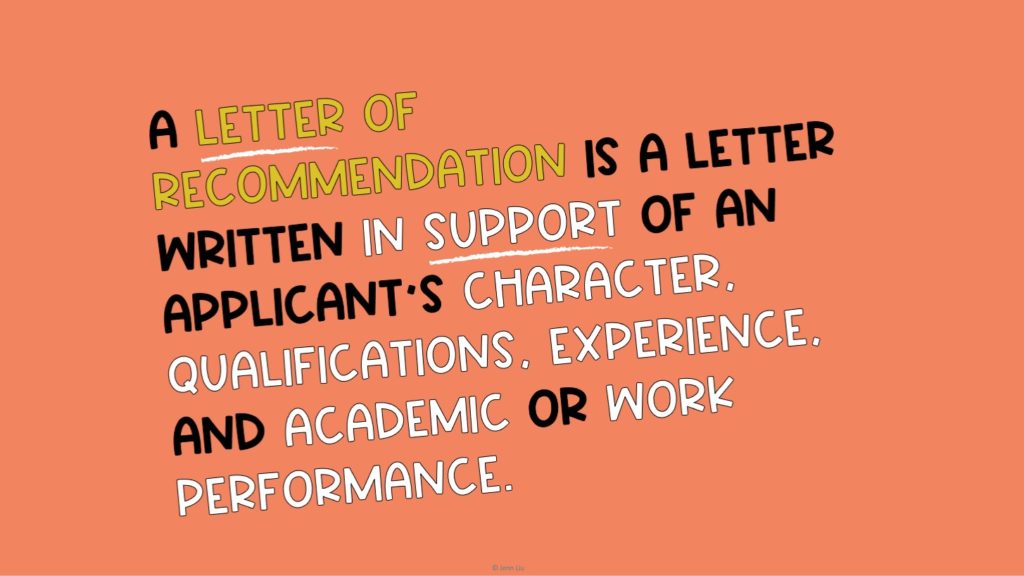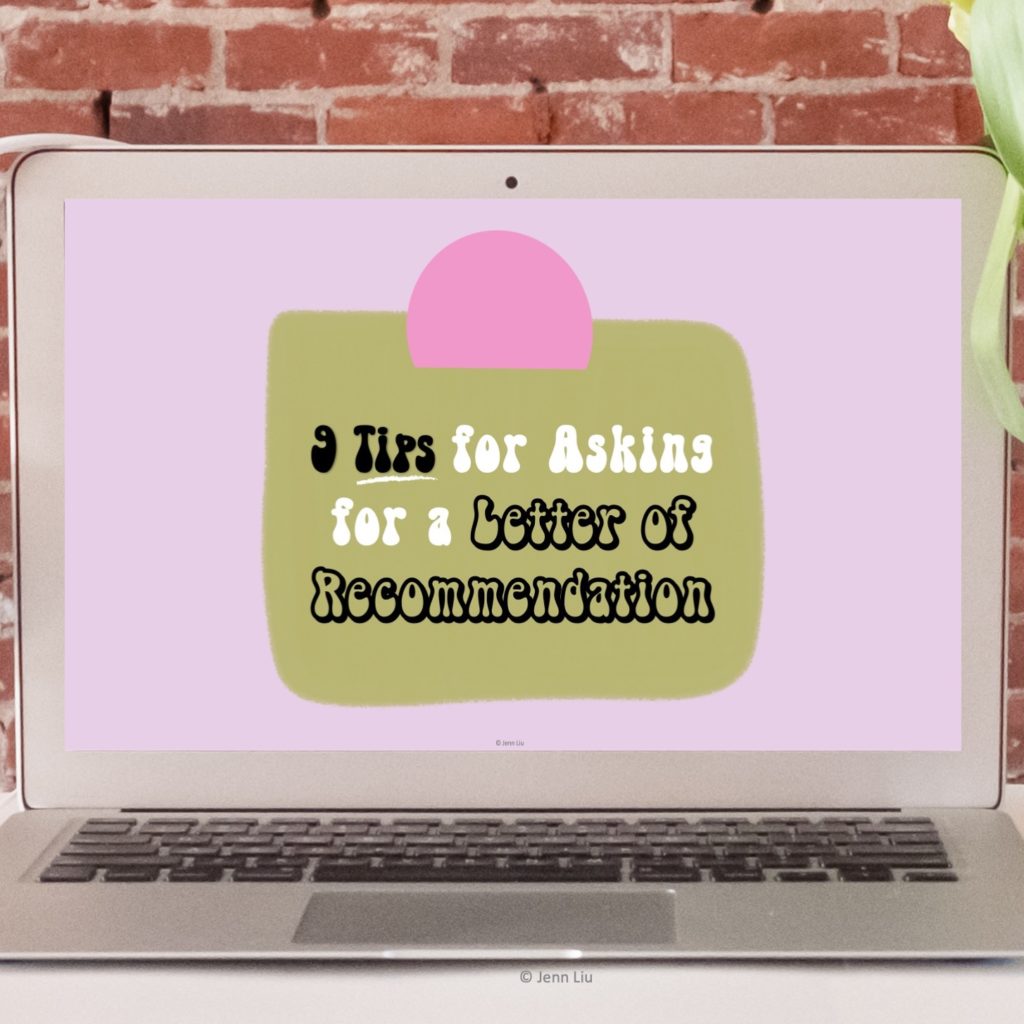Want to help your college-going students get strong letters of recommendation?
This is what I tell students they need to do when approaching their teachers, counselors, advisors, and coaches for letters of recommendation.
First, I make sure my students know what a letter of recommendation is:
A letter written in support of an applicant’s character, qualifications, experience, and academic or work performance. It’s usually sent to a potential employer or scholarship or college selection committee to help decide whether to employ, award, or admit a candidate.

These letters typically come from current or previous teachers, counselors, advisors, employers, coaches, or supervisors.
Then I give my students these nine tips on how to ask for letters of recommendation:
- Find out which schools, programs, and scholarships you need a recommendation for and when it needs to be submitted. Add this information to your application checklist! Be aware that teachers and counselors will likely use the same letter for your different applications.
- Decide who you will ask for a recommendation. For most applications, you will need a recommendation from at least two adults: a core subject teacher from the past two years and a non-core teacher/elective teacher or a coach, community service supervisor, or club advisor. Colleges may also ask for a recommendation from a counselor. Keep in mind that your counselor may also need to complete other reports about you to verify your grades (e.g., students applying using the Common App will need to have their counselors complete the School Report). It’s important to find recommenders who seem to like you and know you well, especially your strengths, interests, and goals.
- Before asking anyone to write you a letter, keep in mind what a recommender might say about you. It’s a good idea to look over the Common App’s Teacher Recommendation Form. For this application, recommenders will be asked to rate you on academic achievements, intellectual promise, quality of writing, creative thought, productive discussion, faculty respect, disciplined habits, maturity, motivation, leadership, integrity, reaction to setbacks, concern for others, self-confidence, and initiative.
- Think about what you can do now to get the best recommendations possible. If you don’t feel anyone knows you well enough, develop relationships with potential recommenders as soon as possible! Go to see your core and elective teachers, ask questions, and share about yourself within the context of your talks.
- Before putting anyone’s name as a reference on an application, be sure to ask that person in advance first! It’s best to ask several months in advance. It’s also best to ask in person if you can. The best way to do this is by scheduling a five-minute meeting with your teacher, counselor, advisor, coach, etc. to meet in person to ask for a recommendation.
When you meet, let this person know what you are applying to and why you chose him or her as a recommender. For example, you could say you feel he or she knows you better than other teachers. If the person agrees to the recommendation, say that you will email more information later that night. Just be sure to never text someone to ask for a recommendation or ask in front of others. Remember to always be polite and appreciative.
In your email asking for a recommendation, it’s helpful to give your recommender your deadline(s) for submitting the recommendation(s), the criteria on which the selection will be based, why you are applying, a copy of your updated resume, and a datasheet/brag sheet including some good points or highlights about you, your current weighted GPA and courses, hobbies and interests, life motto or philosophy, and your future college and career plans. Your teacher or school counselor may also have their own questionnaire or form for you to complete, so fill it out when asked and return it promptly.
- If a college, program, or scholarship application requires a hard copy of your letters of recommendation, then you should provide your recommender with a stamped envelope addressed to the office it should be sent.
- Two weeks before your recommendation due date, check-in with your referees and ask if they need any other information from you. This is a good way to make sure your letters get sent.
- Within a week after someone has completed a recommendation for you, send them a thank you email, note, or card as a minimum.
- Once you find out if you got into the college(s) or received the scholarship(s) you used the recommendation for, share any good news with the people who wrote a letter for you. This is another great way to thank your referees and build your relationship with them.
If you would like a beautiful no-prep, done-for-you interactive Google Slides presentation on “How to Ask for a Letter of Recommendation” to share with your students, click HERE!

Need another tip to help your students get into college? Check out this post!
If you found this article helpful, share it with your teacher friends and colleagues!
Bold font